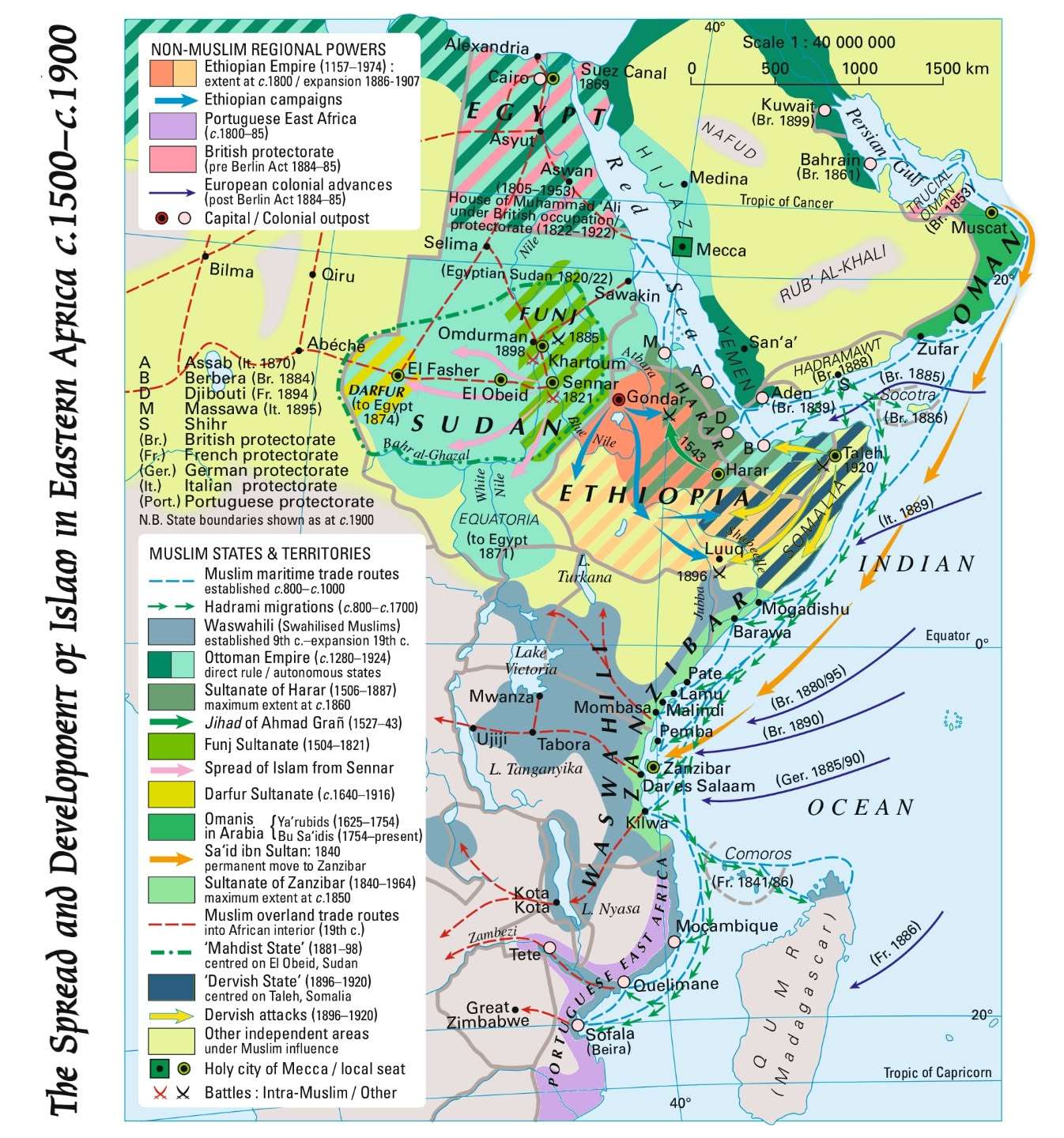The spread and development of Islam in Eastern Africa c. 1500-1900
author: cartesdhistoire/instagram, added on: 2025-04-18

cartesdhistoire:
Atlas of Islamic History, Sluglett & Currie, Routledge, 2014
🇬🇧 The spread and development of Islam in Eastern Africa c. 1500-1900
Beginning in the late 8th century, merchants from the Red Sea and Persian Gulf regions introduced Islam to the East African coast (Zanj). The synthesis between local language and customs and the Islam of the immigrants gradually found expression in the urban Swahili culture of the area. In the early 16th century the Portuguese took over most of the coastal cities and also seized Muscat in Oman. By the 1540s, they helped the Christian Ethiopians defeat a jihad led by Ahmad Grañ, Sultan of Harar. However, they were ultimately expelled from the Persian Gulf, Zanzibar and Mombasa by the Ya‘rubid rulers of Oman in the second half of the 17th century.
Sa‘id ibn Sultan ruled in Muscat after 1827 and in Zanzibar (1840-56), imposing Omani rule from Mogadishu to Kilwa. Zanzibar was the centre of a flourishing trade in slaves and ivory from the African interior, and in cloves, grown on large plantations on the island. Arab and Swahili merchants brought Islam to the interior along the trade routes from Kilwa and Dar-es-Salaam. After Sa‘id’s death, a British protectorate was established over Zanzibar (1890).
Further north, Somalia was divided between Britain and Italy in 1891; this occasioned the foundation of an anti-colonial dervish state which resisted British, Italian and Ethiopian forces (1899–1920).
In 1504, herders from the Blue Nile region had founded the Funj sultanate. They encouraged the spread of Islam in the region, especially to Darfur, where it was adopted as the court and state religion in the late 17th century. In the 18th century, civil wars made the sultanate very vulnerable, and its forces were defeated by Egypt in 1821.
Sudanese opposition to Egyptian rule was expressed through Sufi orders. In 1881 Muhammad Ahmad declared himself the Mahdi (‘awaited saviour’) forbidding un-Islamic local practices and encouraging the adoption of the shar‘ia. On his death, an Islamic state was founded, which lasted until its defeat in 1898 by Anglo-Egyptians at Omdurman.
Collection: world-history - Tags: africa, islam - Source: instagram.com